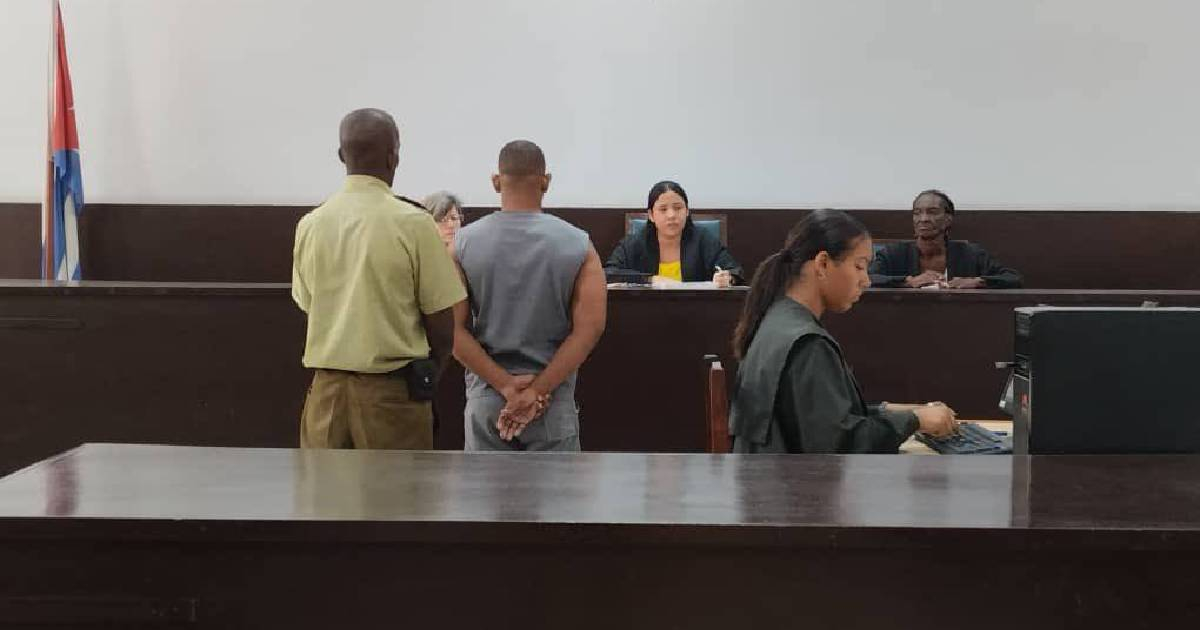A man was sentenced to 12 years in prison by the Provincial People's Court of Santiago de Cuba for transporting 485 grams of marijuana to Camagüey. This verdict is part of a series of public trials described by the regime as "exemplary." Alongside his prison term, the convicted individual faces additional penalties, including the confiscation of 28,455 Cuban pesos and the seized drugs, loss of certain rights, and a travel ban from the national territory.
The judicial body emphasized their stringent policy when dealing with drug-related offenses, maintaining legal guarantees while asserting, "We, the courts, uphold a strict policy against criminal acts associated with drugs, with due rationality." The court also reminded the involved parties of their right to appeal the decision, in accordance with the current legal framework.
Recent Sentencing Trends
Just last week, the same court in Santiago de Cuba handed down sentences of eight and nine years to two young individuals for cultivating and selling marijuana and synthetic drugs in similarly public trials. These proceedings are part of the regime's initiative known as the "Exercise of Prevention and Confrontation of Drugs," aimed at combating the rise in drug trafficking on the island, severely punishing drug-related offenses, and tightening social control.
Rising Concern Over Drug Use
These trials come in the wake of the regime's admission in August 2024 about an alarming increase in drug consumption within educational institutions across Cuba, attributed to the increased availability of narcotics on the island. Even state-run media have acknowledged the presence of drugs in schools and minors' involvement in trafficking activities.
The authorities have vowed to take a tough stand against drug trafficking, promising "exemplary" punishments that could include up to 30 years in prison, life sentences, or even the death penalty, depending on the severity of the crime, such as the involvement of minors, possession of large quantities of drugs, or links to international trafficking.
Escalating Enforcement Actions
In March, several individuals in Sancti Spíritus received 10-year sentences for trafficking synthetic drugs. The crackdown on drug trafficking has intensified, leading to numerous arrests and confiscations in Havana, Holguín, and other provinces. Recent social media reports have highlighted the capture of alleged drug traffickers and the seizure of illicit substances in various locations.
The presence of these drugs in different regions, their distribution through social media, and their growing use among the youth underscore a deepening crisis rooted in both economic factors and the lack of opportunities within Cuban society.
Understanding Cuba's Drug Trafficking Sentencing
What are the penalties for drug trafficking in Cuba?
Penalties for drug trafficking in Cuba can be severe, ranging from lengthy prison sentences to life imprisonment or even the death penalty, depending on the crime's circumstances.
How does the Cuban government justify exemplary trials?
The Cuban government justifies exemplary trials as a means to deter drug-related crimes, uphold social control, and respond to the increasing drug issues on the island.
Why is there a rise in drug consumption in Cuba?
The rise in drug consumption in Cuba is attributed to increased availability of drugs and the socio-economic challenges that limit opportunities for the youth.
